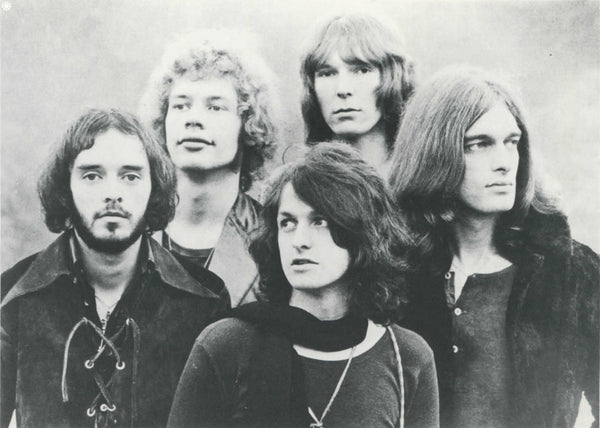The Progressive Rock institution that is the British band Yes came out of the bold musical expression and electronic innovation of the late 1960s. In some part, Progressive Rock had its roots in the music of The Beatles – by 1966, where the Fabs were freed from the onerous yoke of touring, they increasingly became habitués of the recording studio, the results being incredibly ambitious records such as ‘Strawberry Fields Forever’, the ground-breaking Sgt Pepper album, and much more besides.
After the release of Pepper, the landscape was split wide open. British bands such as The Nice made an incredibly rapid progression from playing Pop and Rhythm and Blues to morphing into Psychedelic and Progressive Rock, and embracing Classical music themes within a year of forming. The Pink Floyd, initially at least, fused elements of child-like whimsy with innovative musical experimentation – the departure of Syd Barrett in 1968 freed the band to move still further into new musical spheres. Even the blues wailing Yardbirds had, in their latter days, started to move into psyche-tinged musical exploration, by way of items such as ‘Glimpses’, before their final implosion, with guitarist Jimmy Page going off to convene the hard rocking Led Zeppelin.
In the US, the heavily-orchestrated Forever Changes, the third album by Los Angeles combo Love, laid down a marker for the possibilities available for musicians who’d had their minds opened by psychedelic drugs. Love’s US contemporaries The Left Banke also embraced elements of the Baroque by way of their filigreed, ornately orchestrated mini-symphonies.
Progressive Rock is a musical genre that has, therefore an inherent element of the Classical about it. The predilection for musical complexity, harmonic density, and the desire to break out of the formal restrictions of blues-based rock all inform the shapes that it metamorphosed into. Furthermore, the audience wanted to go along with this progression, too. The previous acme of achievement within pop could be encapsulated in the seven-inch 45 rpm single format, but the ambition and desire to inspire in Prog bands couldn’t be adequately enshrined in this medium. Increasingly, ‘Pop’ became a synonym for the singles chart, whereas ‘Rock’ celebrated the long playing 33rpm milieu as the forum in which Prog acts could create.
The roots of Yes lay in Freak Beat combos such as The Syn, the former home of bass player Chris Squire, as well as Mabel Green’s Toyshop, who featured both Squire and guitarist Peter Banks (Banks would leave Yes in April, 1970, to be replaced by Steve Howe, who paid his dues in the mighty Freak Beat outfit The Syndicats and Psyche pop act Tomorrow), and proto-Merseybeat combo The Warriors, which featured vocalist Jon Anderson. With the addition of drummer Bill Bruford and keyboardist Tony Kaye, they succeeded in landing a record deal with Atlantic Records, who were starting to make inroads into the ‘Rock’ arena by signing acts such as Led Zeppelin, The MC5, and the likes of counter-culture harmony supergroup, Crosby, Stills & Nash.
To go through the various line-up changes of Yes would take more than time and space allows, but suffice to say that they would become a huge-selling sales phenomenon and concert draw, in their native UK and in the US, and all points internationally. As the releases grew, so did the loftiness of their musical and lyrical ideals. It was perhaps only a matter of time before the music of Yes would appear in a classical music format. Under the auspices of arranger Dee Palmer (formerly David Palmer), the London Philharmonic Orchestra in 1993 recorded a selection of Yes classics – Symphonic Music Of Yes - with the involvement of Yes alumni Jon Anderson, Steve Howe and Bill Bruford. Palmer had form in this regard; he had previously worked with Jethro Tull, and had released a succession of symphonic tributes for the RCA label featuring the music of Jethro Tull, Genesis, and Pink Floyd. They had all sold well, and there was clearly a market for releases of this nature.
Including versions of ‘Roundabout’ and a condensed ‘Close To The Edge’ as well as the later Yes hit, ‘Owner of A Lonely Heart’, Symphonic Music Of Yes is a worthwhile re-interpretation of the venerable Prog bands’ back catalogue. Some of the re-imagined recordings work better than others, and obviously, the orchestration and arrangements may not be to everyone’s taste. Amongst Yes fans, it elicits a variety of opinions, from the favourable to the downright hostile, but, if you’re a fan of the band and their music, it’s never less than a thoughtful and considered selection.
With thanks to Alan Robinson

